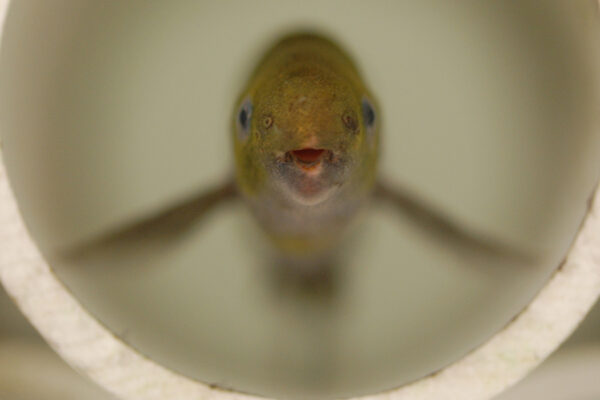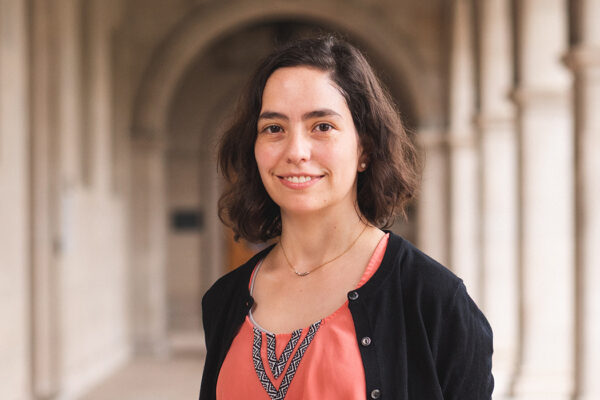Piarulli receives early-career research award
Maria Piarulli, assistant professor of physics in Arts & Sciences, was selected by the Department of Energy’s Early Career Research Program for her research program, “From Atomic Nuclei to Infinite Nucleonic Matter within Chiral Dynamics.”
Electric fish — and humans — pause before communicating key points
Biologist Bruce Carlson in Arts & Sciences draws parallels between human language and electric communication in fish. His new research published in Current Biology reveals an underlying mechanism for how pauses allow neurons in the midbrain to recover from stimulation.
Made in the shade or fun in the sun
A new study from the laboratory of Rick Vierstra in Arts & Sciences helps explain how proteins called phytochromes respond to light intensity and temperature, thus enabling land plants to colonize the planet many millions of year ago.
A seedy slice of history: Watermelons actually came from northeast Africa
Using ancient DNA and tools from the modern genomic age, Susanne Renner in Arts & Sciences discovered that domesticated watermelons most likely came from wild crop progenitors near Sudan.
Laura Escobar Vega: Building mathematical bridges
Laura Escobar Vega, assistant professor of mathematics and statistics in Arts & Sciences, shows students and young professionals new ways to connect with math and see themselves in the field.
Hamlin wins 2021 Stalker Award
Irene Hamlin, a senior majoring in biology with a minor in medical humanities in Arts & Sciences, will receive this year’s Harrison D. Stalker Award, in recognition of outstanding scientific scholarship with significant contributions in the arts and humanities.
Cancer has ripple effect on distant tissues
A new study with zebrafish shows that a deadly form of skin cancer — melanoma — alters the metabolism of healthy tissues elsewhere in the body. The research led by chemist Gary Patti suggests that these other tissues could potentially be targeted to help treat cancer.
Wilder wins 2021 Quatrano Prize
Dani Wilder, a December 2020 graduate of the biochemistry track of biology in Arts & Sciences, will receive the Ralph S. Quatrano Prize. It is awarded to the thesis showing the greatest evidence of creativity in design, research methodology or broader scientific implications.
Ludwig wins 2021 Spector Prize
Ella Ludwig, a senior majoring in biology in Arts & Sciences, will receive this year’s Spector Prize in recognition of academic excellence and outstanding undergraduate achievement in research.
Heme is not just for Impossible Burgers
New research from biologists in Arts & Sciences shows how animals and bacteria differ in the enzyme they use to attach heme to the cytochrome. The results help illuminate a promising target for new antibiotics.
View More Stories









